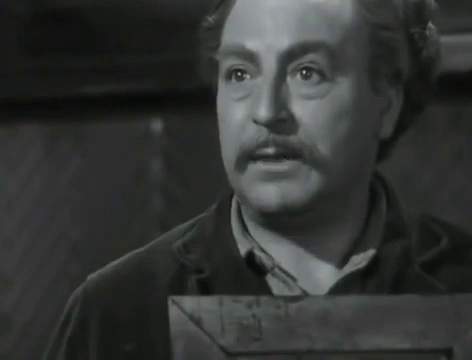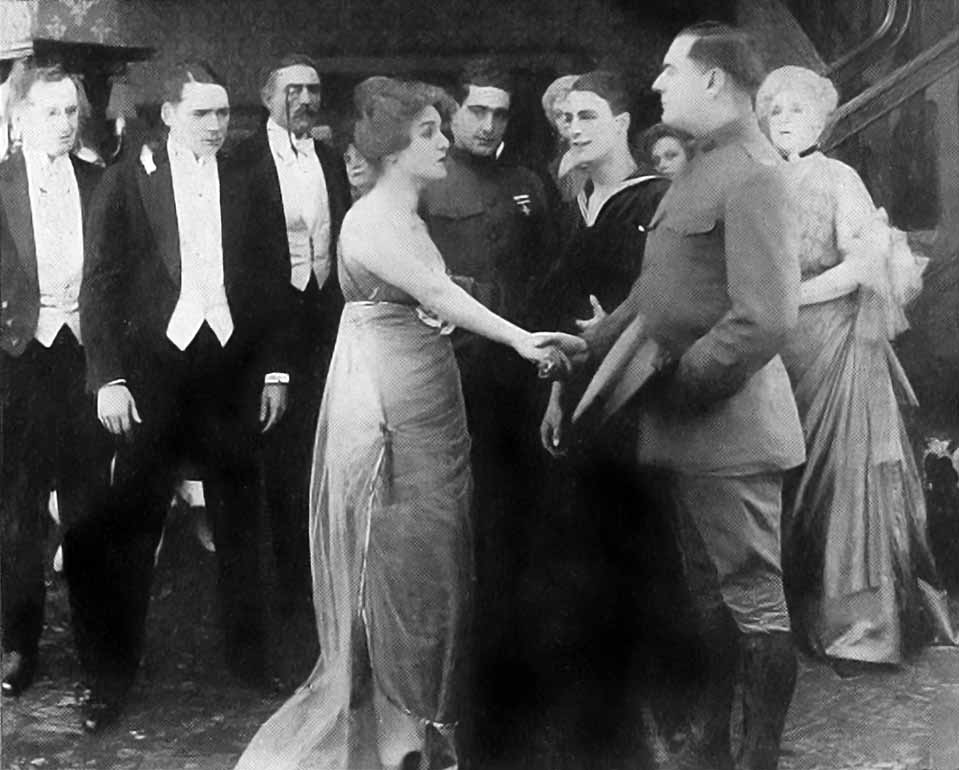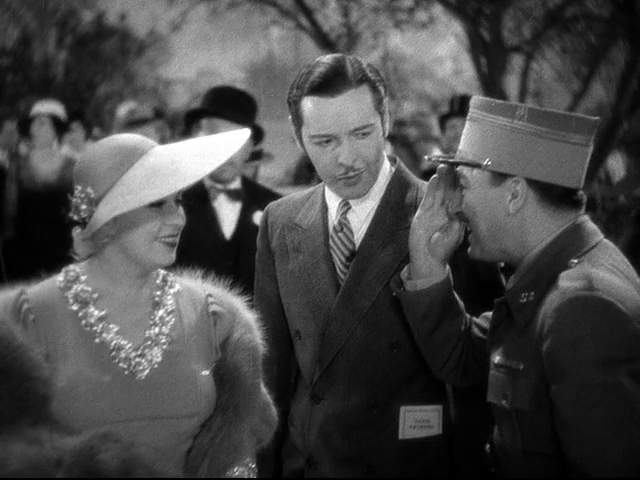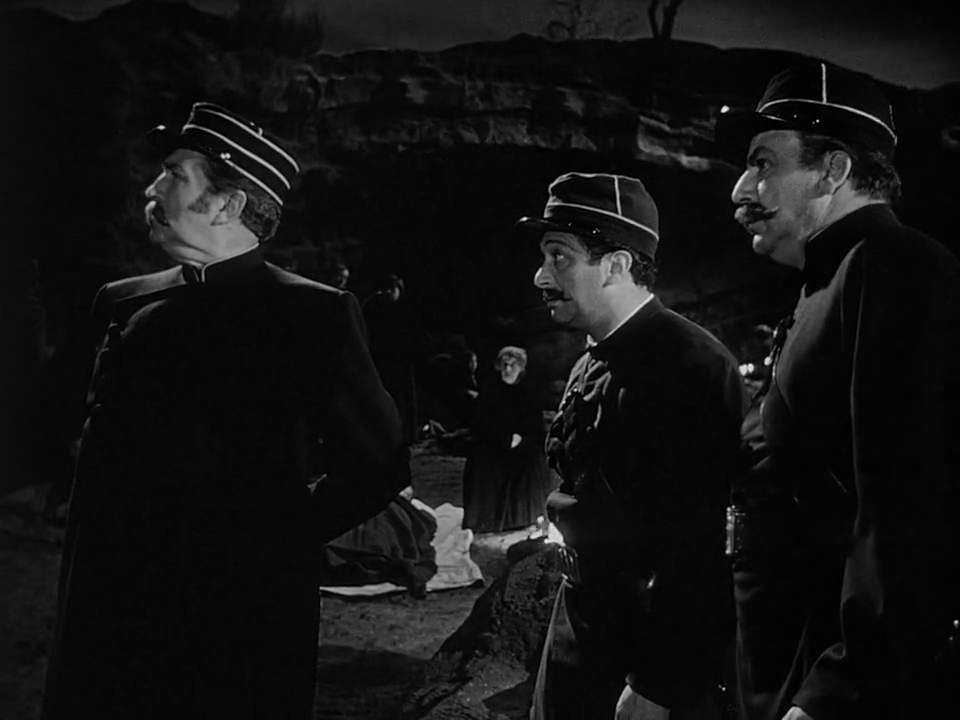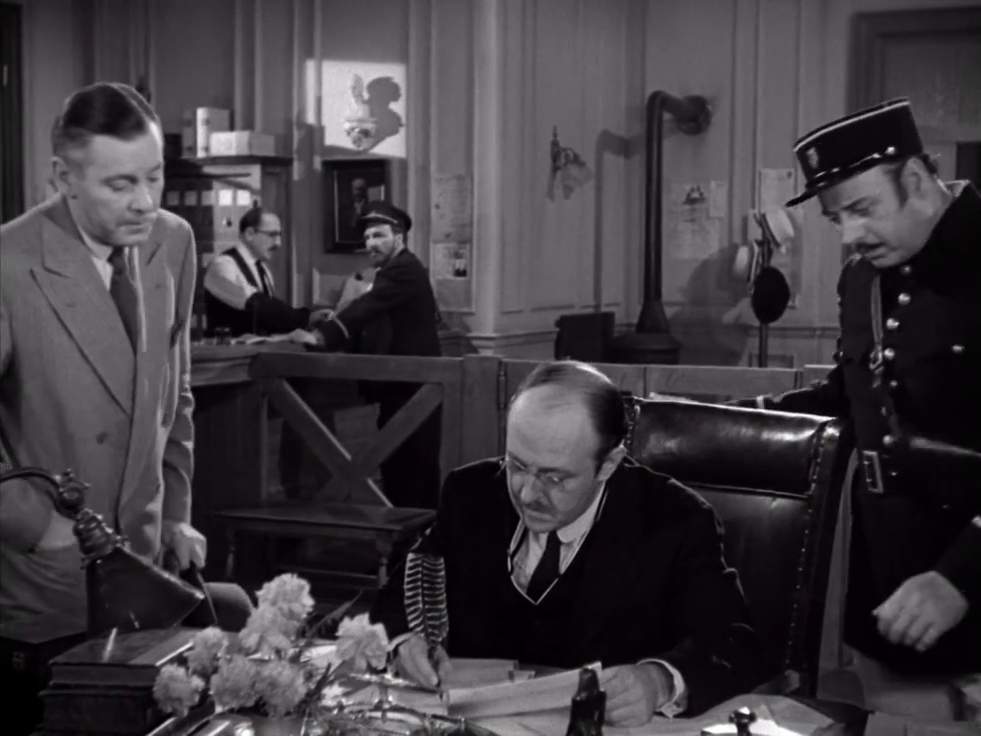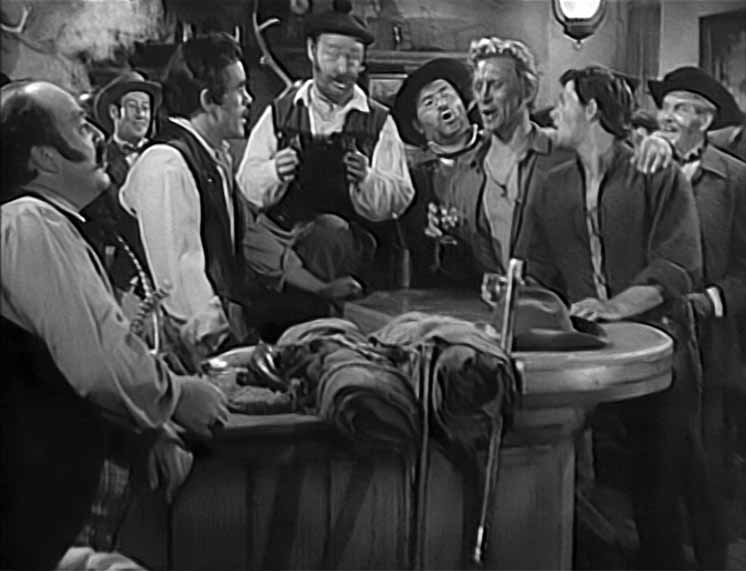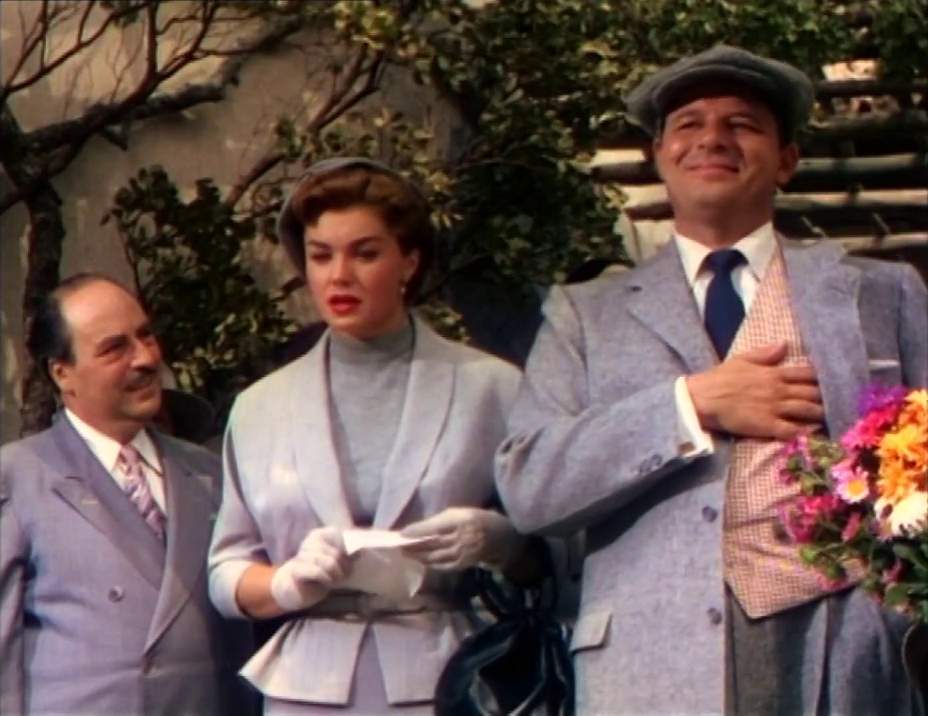Information
Full name: Eugène Élysée Prieur-Bardin
Birth: March 21, 1897 in Constantinople, Turkey
Death: July 21, 1971 in Woodland Hills, Los Angeles (heart attack)
Marriages:
Gilberte Sauvage (April 25, 1918 – 1919)
Sibyl Sanderson Fagan (February 22, 1920 – September 8, 1921)
Anna Pavel Powell (January 29, 1924 – ?)
Elva Smith Stokes (March 6, 1939 – ?)
Job on Snow White:
Voice of Doc in the first French version (uncredited)
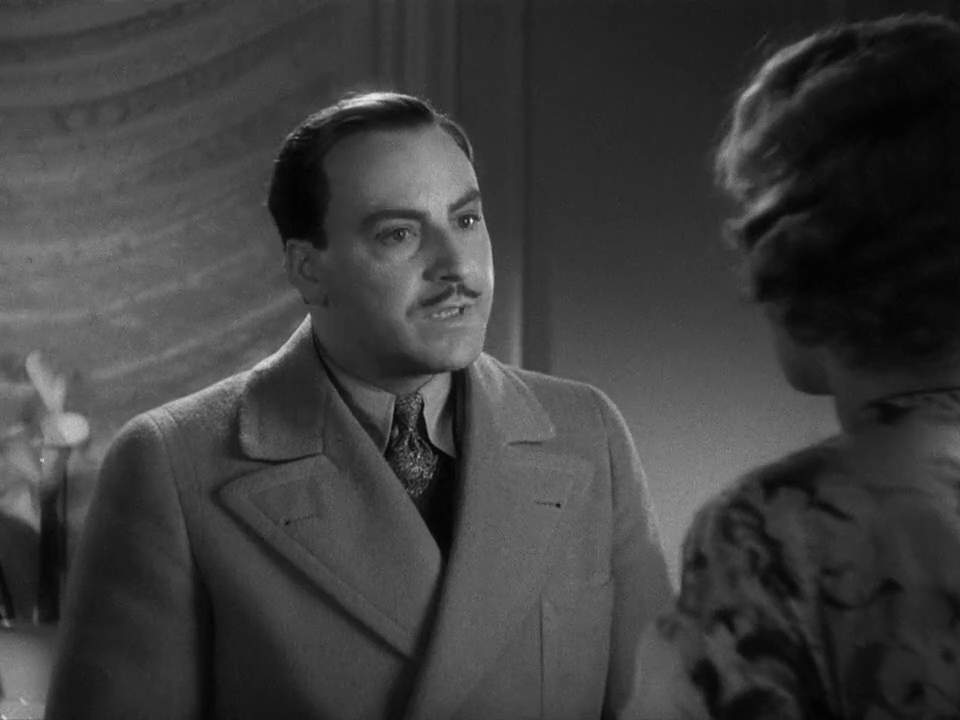
The French Doc
Eugene Borden was 41 at the time of dubbing, and is the voice of Doc. But his landing the role is the consequence of an already long career at the Walt Disney studio: he was a frequent voice of Silly Symphony characters. He was the voice of the grasshopper in The Grasshopper and the Ants, and he did the hare as well as the referee in Toby Tortoise Returns.
The son of a famous artist
Born Eugène Élysée Prieur-Bardin on March 21, 1897 to Eugène Prieur-Bardin & Luce Vercelli in Constantinople, Turkey, from a French family, and died July 21, 1971 in Woodland Hills, Los Angeles. His parents had married on May 5, 1891 in Alger, Algeria. His father was a renowned painter, and his mother had no profession. The couple lived off his art and paintings of Alger, Constantinople (1897-1901) or Marseille (1901-1905) allow us to follow the places where the couple settled.

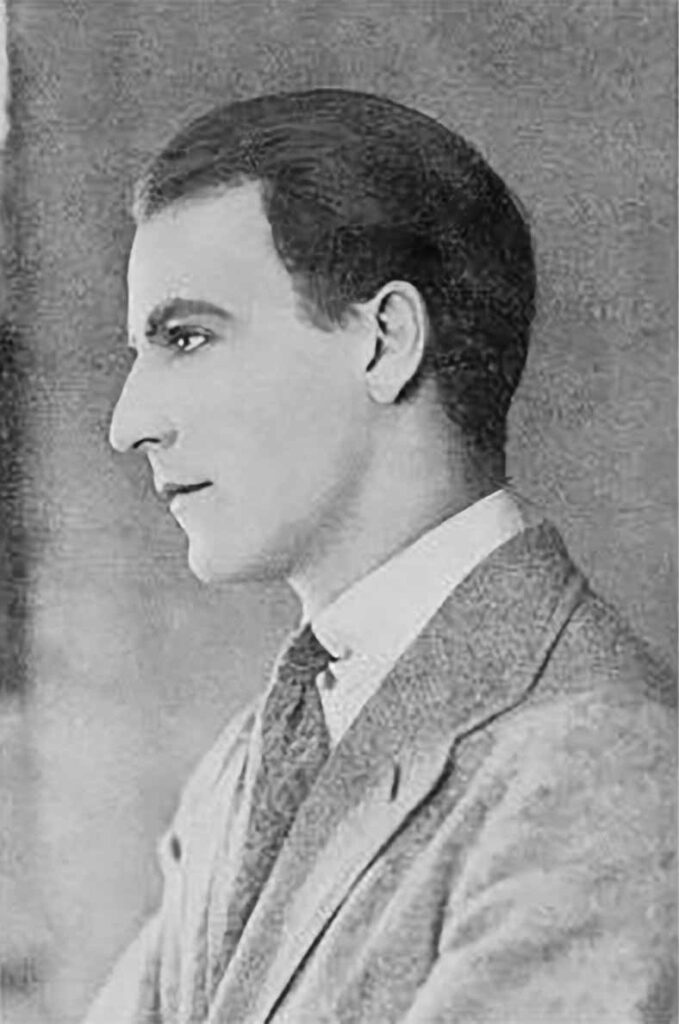
To New York
His father died in Marseille on June, 27, 1905 as he was only 8. His mother moved back to Alger and he came to the U.S. in 1914 to act on Broadway, then was active in film from 1915 with Metro to 1966, first in New York, when he had two short marriages, with a maid, Gilberte Sauvage on April 25, 1918, who died the following year, and then with a performer known for her whistling skills, Sibyl Sanderson Fagan on February 22, 1920. By December 1923, they had broken up and she had married someone else.
He on the other hand, seemed to be in high demand, as he appears in Wid’s year book of 1920. His picture next to his usual types of parts: “Characters and Juvenile Leads” and to his first films: The Stealers, The Liar with Virginia Pearson, The Slacker, where he plays Walter Miller’s younger brother, Draft 258 and Revelation with Alla Nazimova. Most of his films then were directed by Christy Cabanne, including The Great Secret in 1917 and The Barricade in 1921. He also has a part in The Supreme Tests directed by W.P. MacNamara in 1923.
The stage and Hollywood
Eugene then concentrated on his stage career, moved to Hollywood and remarried with actress Anna Pavel Powell on January 29, 1924 in Los Angeles, California.
By 1925, his picture in the Standard Casting Directory betrays a slightly fuller figure and advertises his parts in the plays A Café in Cairo, My Man, and “The Lady” with Pauline Frederick in San Francisco, where he plays a sailor and Josef. He returns to the screen was planned that same year with Monte Carlo under the protection of his mentor Christy Cabanne, for the role of Varo which was eventually played by Tony D’Algy. They never made another film together. Eugene’s next film was Blue Blood.
In the 1928 Film Year Book, his name appears as playing “Character Juvenile” in the stable of Al Rosen with the likes of Walter Huston and Olga Baclanova. He appears as Louis in Gentlemen Prefer Blondes in his last silent film.
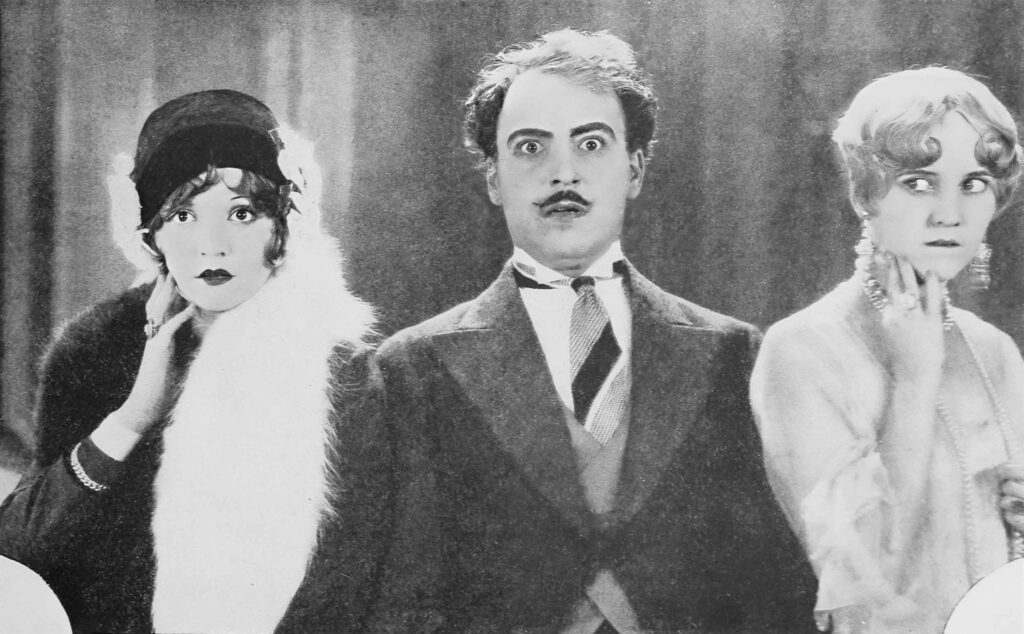
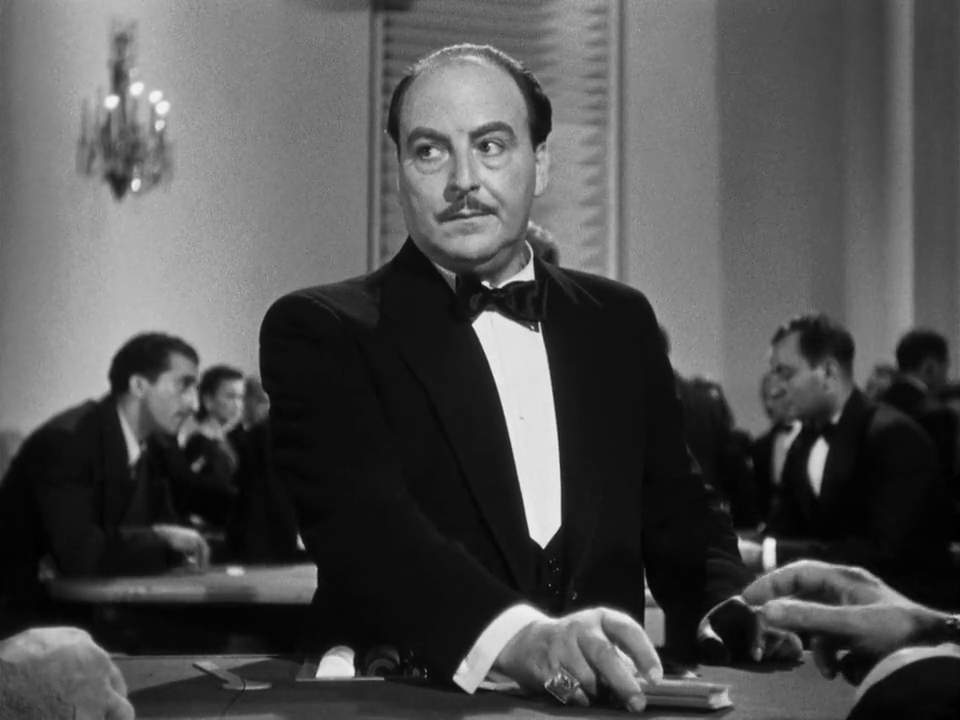
The Talkies
With the birth of the talkies, Eugene Borden gets into trouble with Frank Gillmore, the head of the Actors’ Equity Association, who suspends him and John Miljan over a petition, triggered by the dissolution of the Los Angeles Advisory Board by the same Gillmore, claiming that it had left the actors on the West Coast without representation, as the Exhibitors Herald-World announced on July 6, 1929.
His first sound film is Universal’s MovieTone Hold Your Man in 1929, starring Laura La Plante and he is among the four main characters. The critics are not kind to it and in the following films, he plays small, sometimes uncredited parts. Starting in 1930, however, his French-speaking skills come in handy when film studios decide to film multiple versions of their films for foreign exploitation. The French version of The Unholy Night, Le spectre vert, where French film maker Jacques Feyder directs a French cast, is the first one where Eugene Borden shares the screen with recent French exports. Other such films are La veuve Joyeuse, French version of The Merry Widow, L’homme des Folies Bergère, French version of Folies Bergère de Paris.
He still works in English-speaking productions like The Cat and the Fiddle where he crosses paths with Adrienne D’Ambricourt, the future Queen of Snow White. From then on, possibly due to his bad representation and eviction of the Equity, his parts are usually those of waiters, policemen, and officials, usually only glimpsed onscreen, and mostly in French settings, since he never gave up his French accent.
Still, he appeared in such prestigious films as All About Eve, The Sign of Zorro and To Catch a Thief, and often shared the screen with Betty Hutton, Humphrey Bogart, Betty Grable and other stars.
Eugene’s mother, who had apparently moved in with her daughter in Argenteuil, France, around 1930, and had remarried on April 24, 1937, died in July 22, 1937. Eugene married a stenographer, Elva Smith Stokes on March 6, 1939.
So Dark the Night
One of his finest hours seems to be the film So Dark the Night, a small Columbia production which, contrary to what its title might suggest, is not a Chicago underworld thriller, but a rural drama set in the French countryside, where the role of the heroine’s father earns him third place in the credits. It is telling that the Independent Exhibitors Film Bulletin call their review of the film “effective mystery lacks name”. Eugene Borden is not enough of a star to carry a movie on his shoulders. However, Motion Picture Herald consider that his costars and he “in the leading roles give competent performances.”
In the film’s opening minutes, the protagonist again crosses paths with Adrienne d’Ambricourt, who sells newspapers, and later, Louis Mercier also has a small role. Both collaborated with Eugene Borden on the dubbing of Snow White.
He also has a substantial part in the western Saginaw Trail and made many television appearances. He worked until 1966 and died on July 21, 1971.
